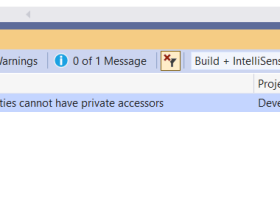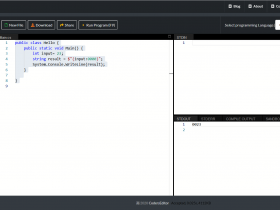C# Error CS1614 – ‘{0}’ is ambiguous between ‘{1}’ and ‘{2}’. Either use ‘@{0}’ or explicitly include the ‘Attribute’ suffix.
C# Error
CS1614 – ‘{0}’ is ambiguous between ‘{1}’ and ‘{2}’. Either use ‘@{0}’ or explicitly include the ‘Attribute’ suffix.
Reason for the Error & Solution
‘name’ is ambiguous between ‘name’ and ‘nameAttribute’; use either ‘@name’ or ‘nameAttribute’.
The compiler has encountered an ambiguous attribute specification.
For convenience, the C# compiler allows you to specify ExampleAttribute as just [Example]. However, ambiguity arises if an attribute class named Example exists along with ExampleAttribute, because the compiler cannot tell if [Example] refers to the Example attribute or the ExampleAttribute attribute. To clarify, use [@Example] for the Example attribute and [ExampleAttribute] for ExampleAttribute.
The following sample generates CS1614:
// CS1614.cs
using System;
// Both of the following classes are valid attributes with valid
// names (MySpecial and MySpecialAttribute). However, because the lookup
// rules for attributes involves auto-appending the 'Attribute' suffix
// to the identifier, these two attributes become ambiguous; that is,
// if you specify MySpecial, the compiler can't tell if you want
// MySpecial or MySpecialAttribute.
public class MySpecial : Attribute {
public MySpecial() {}
}
public class MySpecialAttribute : Attribute {
public MySpecialAttribute() {}
}
class MakeAWarning {
[MySpecial()] // CS1614
// Ambiguous: MySpecial or MySpecialAttribute?
public static void Main() {
}
[@MySpecial()] // This isn't ambiguous, it binds to the first attribute above.
public static void NoWarning() {
}
[MySpecialAttribute()] // This isn't ambiguous, it binds to the second attribute above.
public static void NoWarning2() {
}
[@MySpecialAttribute()] // This is also legal.
public static void NoWarning3() {
}
}





Leave a Review